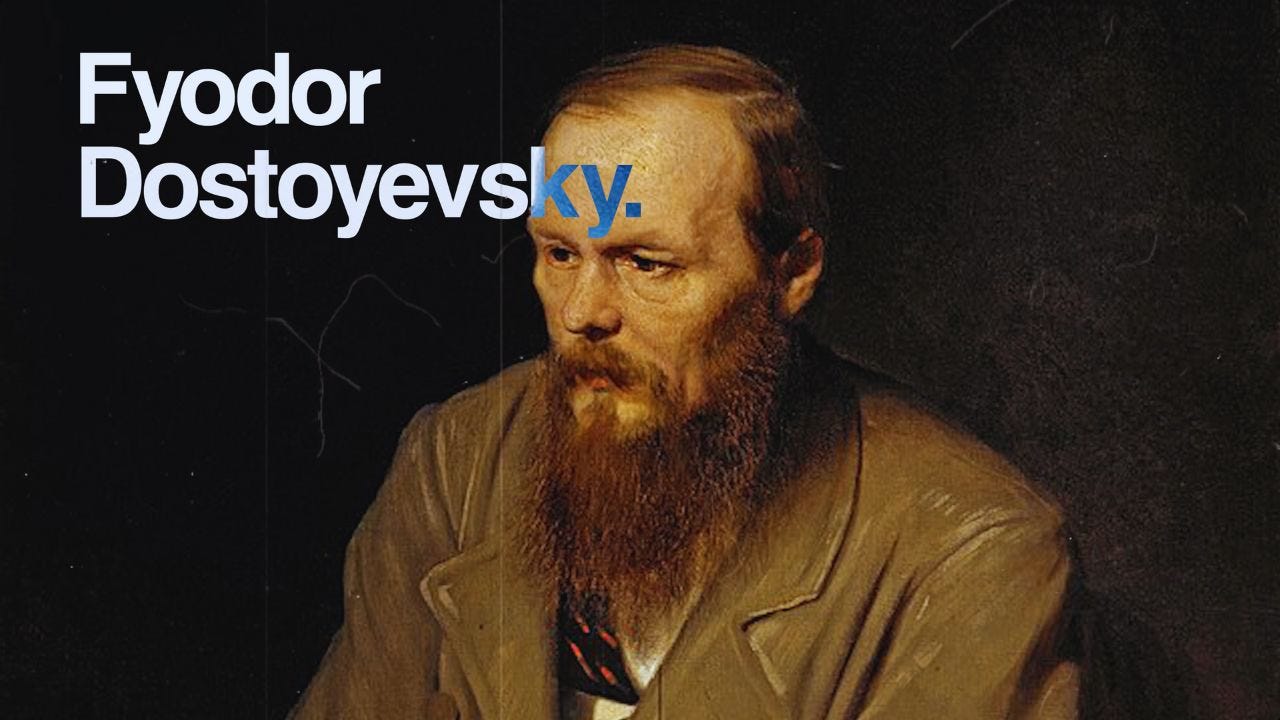Why read Dostoyevsky
Understanding human nature and psychology
When we hear “Fyodor Dostoyevsky,” it’s easy to picture long Russian novels, dreary settings, and complex, tormented characters. But there’s so much more to discover. Dostoyevsky’s works aren’t just novels; they’re invitations to wrestle with life’s biggest questions—about morality, faith, compassion, and what it really means to be human.
If you’ve been curious about exploring this literary giant or simply want to deepen your understanding, my new video will guide you through:
The Turbulent World He Lived In
Nineteenth-century Russia was brimming with social change, political upheaval, and existential debates—a backdrop that shaped every page Dostoyevsky wrote.His Unique Insight into Human Psychology
Through characters like Raskolnikov in Crime and Punishment, Dostoyevsky peels back the layers of conscience, guilt, and redemption in ways that still feel powerfully modern.Why Moral Complexity Matters
His stories challenge easy labels of “good” and “evil,” reminding us we’re all capable of both—and that empathy often emerges from understanding this complexity.Timeless Relevance
Despite carriages, candlelight, and old cobblestone streets, Dostoyevsky’s core questions—about suffering, faith, and free will—remain deeply relevant today.
In the video, I break down these elements and show how Dostoyevsky’s writing can transform the way you see yourself, others, and the broader world. It’s a look at why these timeless tales are still essential reading for anyone seeking to broaden their mind (and perhaps their heart).
Ready for a deeper dive into the human soul?
Watch the Video Here
I hope this short overview inspires you to pick up one of his novels—or at least check out why they continue to captivate readers a century and a half later. Happy reading (and watching)!
Stay curious,
Aniket


Nice! I’m currently reading his Notes from Underground 🤓